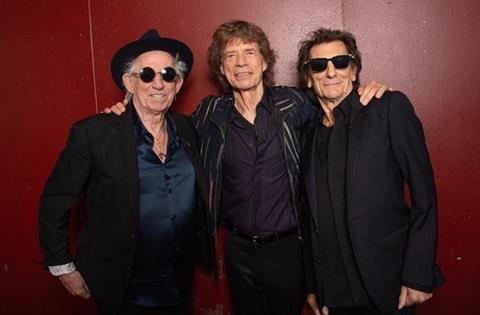The Rolling Stones have released their first album in 18 years. The rock and roll legends ushered in an age of the individualism that changed culture forever - and not always for our good, says Josh Hinton

“Leaving an indelible mark on the musical landscape, they have come to define the very essence of popular culture: the ultimate rock’n’roll band.” So said Jimmy Fallon this month, introducing the Rolling Stones at the launch of their first album in 18 years, Hackney Diamonds.
Just read that again: the very essence of popular culture. When a group like the Stones puts out new material, it’s not just a chance to hear some good tunes. It’s a moment to remember who forged the culture in which we live.
The Stones remain peacock renegades who bent the world to their truth
Like the Queen’s Platinum Jubilee last year, Hackney Diamonds is surely a last hurrah from an icon that’s been with us since the mid-20th Century, one of the architects of our sense of identity. In very broad brushstrokes, before the 1960s counterculture, Britain believed in duty, class and institutions. After the Rolling Stones and the Beatles had done their thing, it believed in nothing but the individual.
Be yourself
Rock stars didn’t invent individualism, but they did fill it with rocket fuel and fire it into the mass consciousness. By the sheer force of their fame and success, they made it OK to break with the guidelines laid out by your family, your school, your church and your government. More than OK, they made it cool, and more than cool, they made it imperative. At its heart, rock’n’roll counterculture in the UK and US was built on the idea that ‘the Man’ was the root of all evil, and only freewheeling, free-loving individualism could save humanity. Being fearlessly yourself wasn’t just an option – it was the sole way to find fulfilment and a brighter future.
That’s why, on a CBS broadcast in 1967, the Grateful Dead’s Jerry Garcia said: “We’re not thinking about any kind of power. We’re not thinking about revolution or war or any of that. We would all like to be able to live an uncluttered life, a simple life, a good life, and think about moving the whole human race forward a step or a few steps.” The Dead are definitely at the more blissed-out end of the spectrum, but their philosophy still sits close to that of the Stones and the Beatles. Nothing organised; no collective struggle; nothing more than people doing their thing. Each to their own.
Individual archetypes
Fast forward 60 years, and this month’s album launch shows that while rock’n’roll might have ceded its musical throne to hip hop, it’s still the spirit of the age. Even in their 80s, the Stones remain archetypes of the self-fulfilled, trailblazing individual – peacock renegades who bent the world to their truth, who never compromised on their uniqueness, and so achieved adoration, riches and artistic purity all at once. To see what makes our culture tick, you only need to look at them on that stage, soaking it all up. “You’re utterly yourselves”, the applause seems to say, “and it’s perfect.” What higher acclaim does our culture have to offer?
Far from a pluralist utopia, we’re building a political tinderbox
As a society, we still desperately want that lifestyle. We idolise those who manage to pull off this ultimate individualism: Taylor Swift, Billie Eilish, Nicki Minaj, Ed Sheeran. Our heroes are marked out, first and foremost, by the extent to which they pursue their unique vision over and above any narrative that society presses on them.
The party is over
But the truth is, we’re now living in the hangover of the 60s individualism party.
Millions of us are being mentally crushed by the weight of expectation we place on ourselves; by the desperate need to find our best selves and live our best lives.
We’ve isolated ourselves from the structures and social groups that used to give us support and purpose. And, far from a pluralist utopia, we’re building a political tinderbox, falling further into tribalism with each individualist, populist leader we elect.
As Christians, we’re fond of declaring ourselves “in the world but not of it” (see John 17:14-19). Before our sexual ethics or even our treatment of the poor, this must be our foundational point of difference: that we seek to live an other-centric life rather than an individualistic one. Because we follow the self-sacrificing saviour who said: “Whoever wants to be my disciple must deny themselves and take up their cross daily and follow me. For whoever wants to save their life will lose it, but whoever loses their life for me will save it” (Luke 9:23–24).
In a society that teaches us to be Mick Jagger – brilliant as he is – we can live and speak a different truth: that in service we discover our true identity and purpose, and that the God-given magic of the individual is only truly seen when we surrender ourselves to the good of others.





































No comments yet